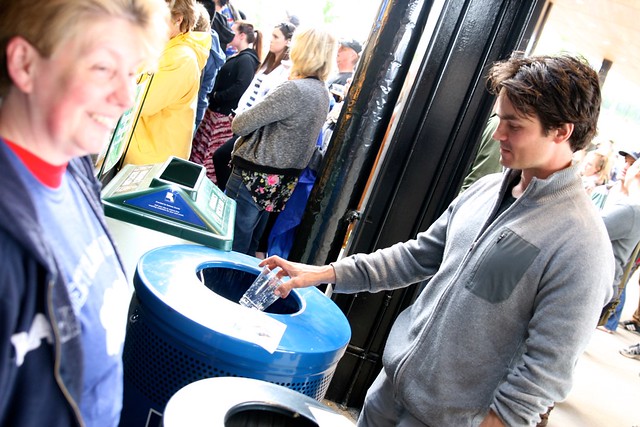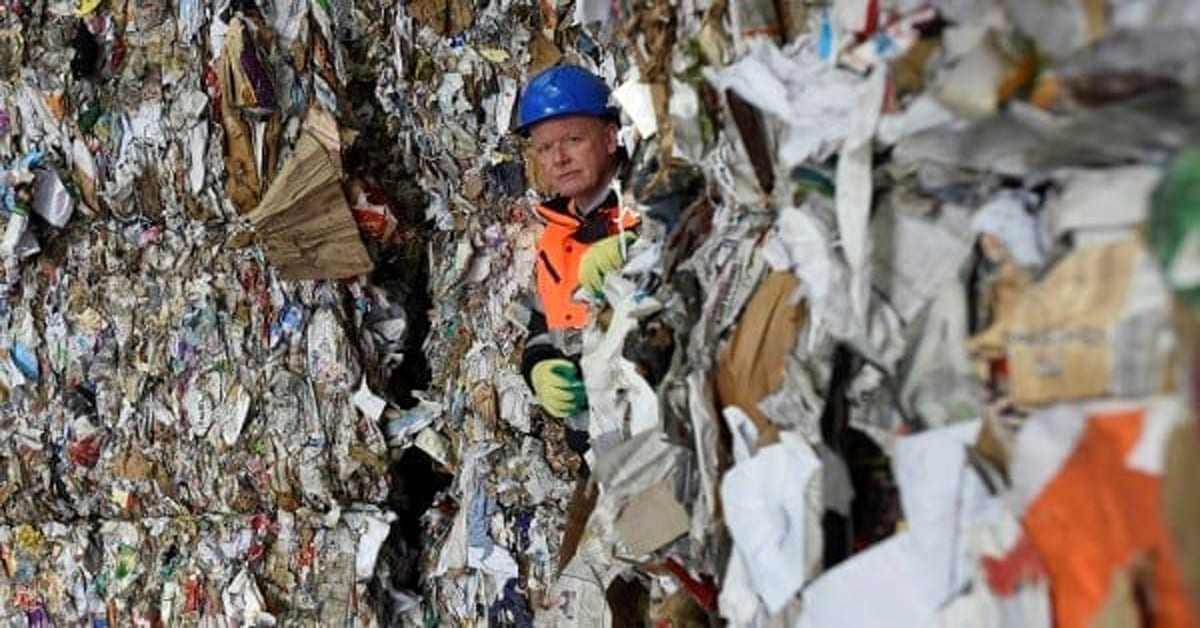
Recycling. It paints a cheery picture. A family going through their bins. Sorting their trash. Putting what could be recycled to the blue bin. An average person probably recycles. And thinks that it goes back to the manufacturing cycle. Ready for a new production line. And there it goes. We sigh in relief. We’re helping save the planet.
In fact, recycling is morally good for our society. We sort our garbage. Or at least attempt to. Then depend on our cities to manage the process. We pay for it in our taxes, after all.

Most of us have been taught that recycling is good
or the environment! Not only does it help the environment, it also helps us in being more “responsible” with our trash!
Most often consider recycling to be greatly successful. It collects and processes waste into new products. Most Western countries such as US even claim that this process sparks more jobs in their manufacturing sector. It is the right thing to do with trash, they said.
But dig deeper into the process of recycling. It paints a different picture. One that is outrageous and tragic at the same time.
The Dark Sides of Recycling
Most of us think that it’s all sunshine and rainbows and everything good when it comes to recycling. But the truth about recycling is that it’s only selling your trash to a global market. You might think that you’re helping the environment by giving your trash a new use but in reality, you’re not.
Recycling isn’t a noble manufacturing process. It’s actually an industry selling your trash to a global market. But the idea that your trash could create something new is very appealing. Alas, it is just a fantasy. No efficient system in place.
Its optimistic facade hides a controversial industry. Then China ceased taking in the world’s trash. Next the world shook with shocking revelations. Exploitation, oppression, degradation of resources. Even more, deception.
Before you toss anything in your blue bins, think. There is a dark side to everything. You might not know these about recycling.
1. Toxic colonialism
The West prides in being eco-friendly. They run on renewables. They champion the Amazon. But this doesn’t tell the whole story. Hidden out of view, first world countries effectively outsourced their carbon footprints. They import goods from factories in China and the global South. As for their recycling? They do that in China, South East Asia and Africa.
The recycling industry is part of a worldwide problem. It is modern colonialism at its worst. Rich countries exploit developing countries for their natural resources and labor capital. They also dominate their own native populations this way.
As early as the 1990s, poor nations protested against toxic colonialism. Africans protested about the disposal of hazardous wastes. So the Basel Convention was signed in 1989. But it is too weak. Ignored and kept toothless by industrialized countries such as Canada, America and EU member states.
The recycling crisis is much worse for the countries who receive them. Exporting countries mislabel or reclassify waste. For instance, the recent Philippine-Canadian dispute. This international incident sparked from mixed municipal waste faked into recyclables. In essence, they hide the West’s toxic relationship with waste through exploitation. The rest of the dark truths of recycling go back to this point.
2. Injustices
People under the recycling industry are at risk. Workers operate under unsafe conditions. They have dirty work spaces. They work long hours. Their heavy, dangerous machines often lack safety features. So they die from accidents more than anyone else. Worse, recycling exploits vulnerable sectors. These include immigrants, convicts, indigenous communities, etc.
It is worse in developing countries. Many poor pick wastes to avoid starving. Child labor also occurs. Worse, the environment there kills them. For instance, people in Bangun die young due to microplastics. But few people in such places want recycling business to stop. They feel like it’s their only livelihood. The toxic recycling process pollutes their environment severely. To the point that they can barely live off the land.
In China, the dangerous recycling industry caused a public outcry. So in 2018 the government banned waste imports.
4. Recycling itself is futile.
So what’s with recycling? Recycling itself is not futile. But it is a flawed system. Glass, metals, paper and electronics can be recycled well. But plastics? Barely worth the effort. According to experts, plastics recycling is inefficient and incomplete. It is also the most prone to contamination.
Improper waste disposal leads to contamination. Contaminated materials cause recycling to fail. Worse, most cities use “single-stream recycling system”. Here most people just dump what they think is recyclable to the blue bin. Common mistakes are plastic straws, grocery bags, and eating utensils. Some plastics cannot even be recycled. They also end up burnt or thrown to landfill.
The recycling business fails here. Because of contaminated materials. First they reduce profits. Then drive up production costs. Also, they damage machinery. Worse, even after intense processing, they are worthless. Together with the profitably recyclable materials that they mix with.
It isn’t cost-efficient. Cities spend more in recycling schemes than landfills. Then China imposed ban on contaminated trash. So it caused cities to charge people for their recycling. Thus, many chose to recycle less than pay up.
Most importantly, recycling is not sustainable. Few countries can recycle all the material on their own. Also, materials cannot be recycled forever.
5. It still contributes to air pollution and environmental degradation.
Processing recyclables produces pollution. First, factories here operate under fossil fuels. They emit carbon dioxide and methane. Then they also waste water during production. It doesn’t reduce the waste pollution. Rather, it adds to it even more.
Now it is time to look beyond recycling. Recycling cannot be the miracle cure. Rather, it is just a part of the whole solution. Instead, let’s look at better solutions.
Conclusion
Don’t think of recycling. Before you can reuse it on your own. Then stop relying on it. In fact, this way you can compel companies to step up.
As consumers, there are two ways to respond. First, consume less. Don’t buy what you don’t need. Or won’t need any longer. Try minimalism. Lease rather than buy. For example, lease baby and kid clothing. Since kids just outgrow their clothes.

Second, go zero waste. Think before you buy. Choose the ones with less to no packaging. Buy and use reusables instead of disposables. Lastly, think quality, not quantity. Buy durable products.
In essence, it is better to not recycle than to recycle badly.





I agree with you! China has stopped buying our recycling and other countries like the Philippines are following suit. Recycling doesn’t work unless you do the other two Rs – reduce and reuse!